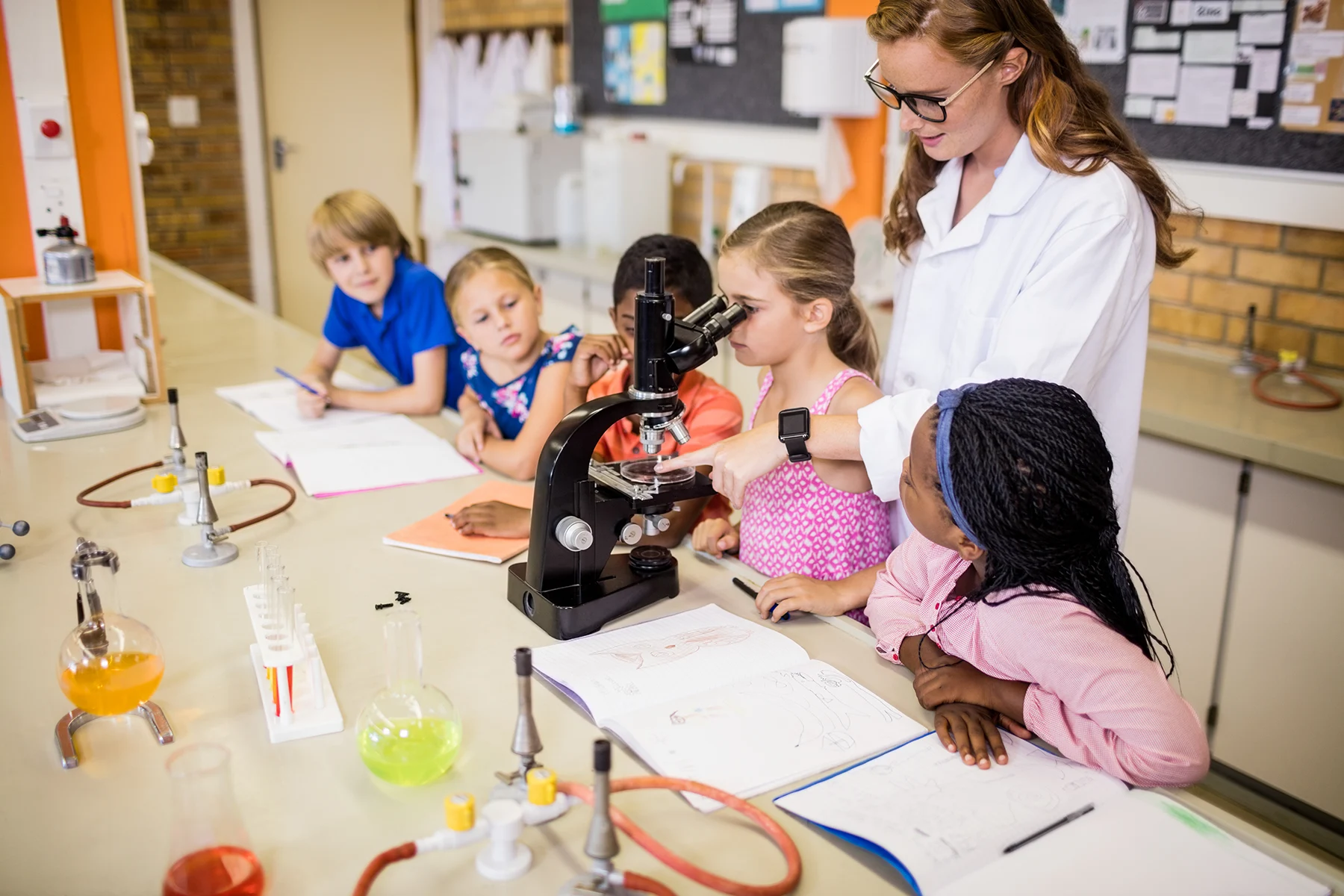Primary science isn’t just about learning facts and doing experiments. It sparks curiosity, encourages exploration, and builds skills that last a lifetime. Building this aspect into children’s mentalities is important to help them keep developing, reaching new heights, and thinking critically.
Through hands-on learning, children learn to observe, think analytically, and ask questions. After all, these skills don’t just apply to science. They help children tackle challenges in school and everyday life with confidence.
In this post:
Key Takeaways
Science nurtures curiosity and encourages children to ask thoughtful questions
Hands-on learning builds problem-solving skills through experiments and investigation
Analysing data and thinking critically helps children make informed decisions
Science promotes teamwork and communication, preparing children for collaboration
The skills gained from science lessons support lifelong learning and adaptability
Why Science Skills Matter in Primary Education
Why Science Skills Matter in Primary Education
Science in primary school is about much more than memorising facts. It helps children develop essential skills that shape how they think, learn, and explore the world. Introducing scientific concepts early on encourages curiosity and a love for discovery.

According to the National Library of Medicine and other scientific experts, children who engage with science from a young age develop a habit of asking questions and seeking answers. This way of thinking is useful across all subjects, helping them become independent learners. It also teaches them how to reason logically and connect different ideas.
Science also builds confidence. When children conduct experiments and reach conclusions, they gain a sense of achievement and ownership over their learning. This boosts their motivation to take on new challenges and find creative solutions, something that many teachers carry through to higher stages of learning.
In many ways, primary science is the foundation of all future learning. It teaches children how to think analytically, solve problems, and communicate this to their peers. These are valuable tools they will use throughout their lives, no matter where that may take them.
Key Skills Developed Through Science Learning
Science lessons help children develop a range of skills that build up their learning and development. Through exploration and enquiry, they build habits of thinking that are useful far beyond the classroom.
Observation and Questioning
One of the first things children learn in science is how to look closely at the world around them. They start to notice patterns, describe what they see, and ask thoughtful questions. This curiosity drives learning, giving them encouragement to seek answers to the questions growing in their minds.

By asking “how?” and “why?”, children develop reasoning skills. They learn to make connections, predict outcomes, and understand the importance of evidence in forming conclusions. This is something that many choose to implement into everyday science for children of this age, fostering that interest and building on it.
Experimentation and Investigation
Science is hands-on, and experimentation is key. Children test ideas, explore cause-and-effect relationships, and see firsthand how things work. This active learning builds confidence and reinforces understanding.
Investigations teach children how to solve problems systematically, and understanding how a child may approach this is vital for success. They form hypotheses, set up fair tests, and gather data to support their conclusions. This structured approach is useful in many areas, from maths to decision-making in everyday life.
Practical and fun science experiments also show children that failure isn’t the end: Instead, they find out it is simply part of learning. When something doesn’t go as expected, they adjust their approach and try again, building resilience and adaptability.
Data Analysis and Critical Thinking
Science teaches children how to gather and interpret information. They learn to organise data, identify patterns, and draw conclusions based on evidence. This ability to analyse information helps them make well-informed decisions.
Critical thinking plays a big role here, as outlined in this paper around how children learn from others. Many children end up slowly losing these skills, so encouraging them to hold onto this aspect is important.
Through scientific query, children learn to question sources, compare results, and consider different explanations. These skills are essential in today’s world and across several careers and industries, where evaluating information is more important than ever.
Problem-Solving and Creativity
Science encourages children to think outside the box. By exploring new ideas and testing solutions, they develop both logical reasoning and creative thinking.
Problem-solving in science often involves trial and error. Children experiment with different approaches, refine their ideas, and develop persistence. This flexible mindset helps them tackle challenges with confidence.
Creativity is second only to logic in science. From designing experiments to coming up with new ways to explore ideas, children are encouraged to use their imagination. This helps them in all areas of learning, not just in the scientific fields, and is a growing area of inquiry across various academic papers.
Communication and Collaboration
Science isn’t just about working alone. It’s about sharing discoveries. Children learn how to explain their ideas, present their findings, and discuss results with others. These communication skills are valuable in any field.

Collaboration is also a cornerstone of science. Many experiments involve teamwork, teaching children how to listen, work together, and respect different viewpoints. These skills prepare them for working with others in future studies and careers.
In fact, a study from ScienceDirect notes that cooperative learning improved group behaviour, with an improvement in positive attitudes and approaches to handling group tasks over time.
Through group projects and discussions, children also develop the ability to explain their thinking with evidence. Learning how to back up their ideas and debate constructively is useful in many subjects and real-world situations.
The Lasting Impact of Science Education
The skills children gain through science lessons go far beyond the classroom. By developing a scientific mindset, they learn to think critically, solve problems, and approach new challenges with curiosity and confidence.
Science encourages children to question information, look for evidence, and think logically. These skills help them make informed decisions in all areas of life. Whether it is evaluating news, solving a problem at work, or simply figuring out how something works, a strong foundation in scientific thinking is invaluable.
Beyond academic benefits, science also fosters resilience and adaptability. Learning to test ideas, analyse results, and refine understanding helps children become more comfortable with challenges and open to new experiences.
As they grow, these skills will serve them well in a wide range of careers. The ability to think critically, collaborate effectively, and approach problems with a curious mindset makes science education an essential part of early learning.
Conclusion
Primary science does more than teach children about the world. It shapes the way they think, learn, and engage with new ideas. By building observation, problem-solving, and communication skills, science education helps children grow into confident, adaptable learners ready for whatever comes next.












